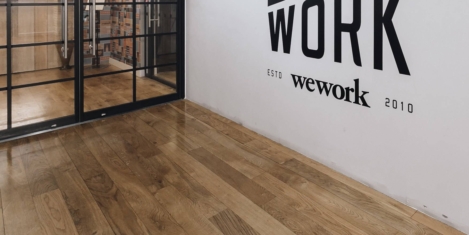July 27, 2015
Coworking juggernaut WeWork announces plans to dominate London
 Earlier this month, US based coworking juggernaut WeWork announced that it had opened the UK’s largest space of its kind in Moorgate in East London. Now, according to a report in the journal CoStar, the firm is looking to become a major tenant in the commercial property market in London in the same way that it has come to dominate Manhattan. According to the report, WeWork is looking to acquire over 1 million sq. ft. of space in the capital over the next 18 months as it seeks to provide coworking space for its growing customer base of young creative and technology businesses and other start ups. If it succeeds in finding the space it wants, the firm will have quadrupled the commercial property it occupies in London to 1.5 million sq. ft. WeWork is already Manhattan’s largest tenant and is now valued at $10 billion, having started in 2010.
Earlier this month, US based coworking juggernaut WeWork announced that it had opened the UK’s largest space of its kind in Moorgate in East London. Now, according to a report in the journal CoStar, the firm is looking to become a major tenant in the commercial property market in London in the same way that it has come to dominate Manhattan. According to the report, WeWork is looking to acquire over 1 million sq. ft. of space in the capital over the next 18 months as it seeks to provide coworking space for its growing customer base of young creative and technology businesses and other start ups. If it succeeds in finding the space it wants, the firm will have quadrupled the commercial property it occupies in London to 1.5 million sq. ft. WeWork is already Manhattan’s largest tenant and is now valued at $10 billion, having started in 2010.




































July 21, 2015
Neocon highlights four of the world’s most important office design trends
by Neil Franklin • Comment, Events, Workplace design
More →